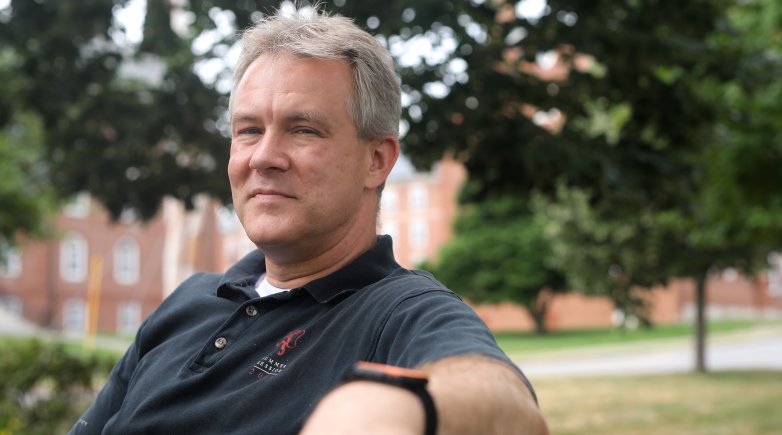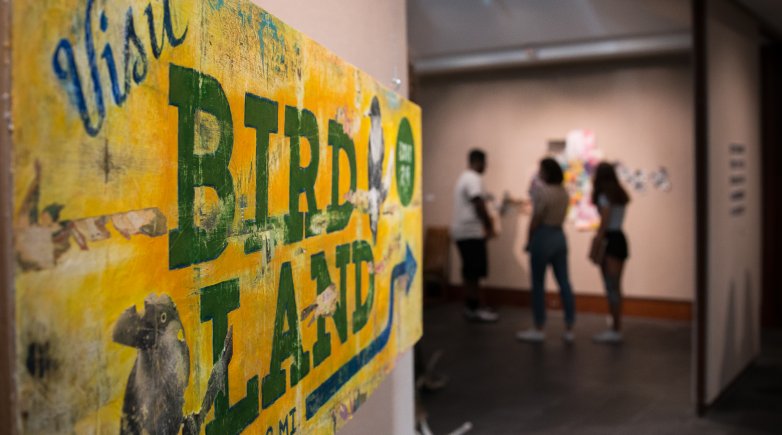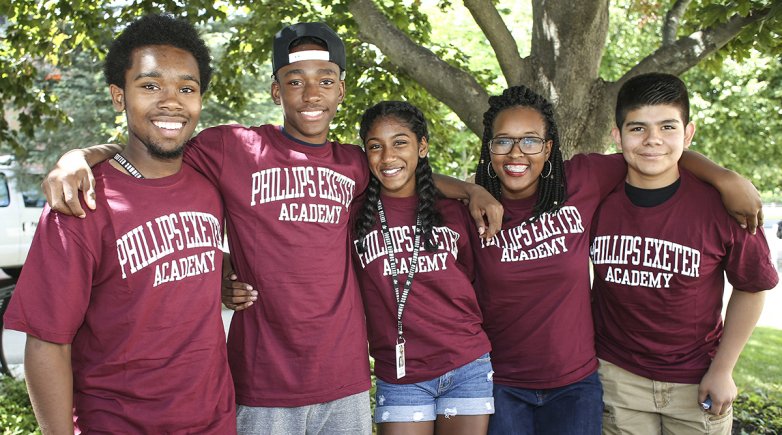Summer 'like nothing ever before'
Exeter Summer Interim Director Jeff Ward discusses what to expect from the program's 103rd edition, post pandemic.
A fresh batch of Exeter Summer students will arrive on campus the day after Independence Day, shaking the Academy grounds from their summertime slumber. While the 103rd session is still contending with the effects of a global pandemic, there is hope that the five-week program will mark another step toward normal.
Like the Academy’s regular session, Exeter’s summer program oozes opportunity. Curious learners between 7th and 12th grades can take on new challenges and design their own courses of study, sport and recreation, all within a pressure-free — and grade-free — environment. It’s a winning model honed over the course of a century.
But, just as it did everything else, COVID-19 intruded. The 2020 summer session was entirely confined to Zoom. This year, the pandemic’s fallout has limited the student body to around 400 students — down from 750. Almost all of the enrollees come from within the United States, a distinct change for a program that attracts students from more than 40 countries each year.
New this year, too, is the director. Jeff Ward, a longtime instructor in chemistry at the Academy, takes over as interim director as Russell Weatherspoon transitions to become PEA’s new dean of students. Ward is a veteran of every summer session since 2005, the past seven as dean.
He took a break from making final preparations for this year’s program to discuss what he expects from the 103rd edition of Exeter Summer:
The first big question is, what will the 2021 version of Exeter Summer look like?
It'll look like nothing ever before. We've got about half the kids. Everyone's in a single room. We've still got some COVID protocols in place. .. Last year was unprecedented, and so is this one. Like we've been talking about in the regular session, this is a transition year for the kids, because a lot of them in the past academic year were fully remote and then they're going to probably be in person in the fall. So, this is their transition.
Speaking of transitions, you’re making one, too. How has this process been for you?
For the past seven years, I've been given a fully formed program. Now I'm on the other side, putting things together, assigning students to rooms, assigning advisers, talking to teachers, making sure classes have an instructor, setting up the dorms. I'm really familiar with the program, so there's a lot I know, but there's still some aspects that are a black box, and I'm learning with Russell's help on that aspect of it. But not as a big jump as far as coming in blind, because I've fulfilled almost every role in this program except director.
You have been so invested in Exeter Summer for so long. What draws you to this?
It changes the lives of kids. I've got a letter on my office wall from a kid who left it in his desk drawer, and he said that it wasn't cool to be smart at school and it wasn't cool to be an academician. And he learned in these five weeks that it's OK to be a deep thinker, it's OK to be a good student. And he says that changed his life. That's just awesome, that a small five-week enrichment program can do that for kids, to show them the possibilities of what they can be if they just believe in themselves and have people surrounding them and building them up.
Is every year a little bit different?
Every year is very different. Unlike the regular session where we only have a quarter turnover, I'd say 90% of the students are new every year. We learn every year to adjust, to make the program better and better, and there's no large amount of institutional history saying, "Wait a minute, last year we weren't able to do that, or last year we did this and we're not doing this this year." Every year is fresh and new with almost all new students. We've got a really good stable faculty base, which makes it easy for the program, but there's also lots of good innovations from year to year.
Who would you say that this program is for? What type of learner can benefit most from these five weeks?
I think it's someone who just wants to interact with their peers in a very low risk academic setting. Where if they realize that they're not good at something, their future isn't ruined if they fail a class. It's for someone who wants to explore an area that's not offered at their school. We have a journalism class. At one point we had a radio production class. We have astronomy astrophysics. Our ACCESS EXETER clusters. If I were a teenager and I were to come here, I would take CSI, detective fiction, digital photography and forensic science. How cool is that, where the capstone project is there's a murder and you have to gather information and get a list of suspects to try and whittle it down and who did what? To do that for five weeks over the summer, while I'm meeting people from all around the world, that's just a really, really cool opportunity.
But you're a chemistry teacher. Would you suggest that kids take chemistry in these five weeks?
Always take chemistry. Always take chemistry.
OK, OK! What will a successful five weeks look like to you? What will Aug. 7 look like if you’ve succeeded?
If we are all healthy. If students have realized more than what they thought they would coming into our program, even if it's as small as, “Wow, I can actually live next to some people that aren't in my family and get along with them. Or I'm from a rural section in New Hampshire and I met someone from New York City and I learned more about the world just by interacting and living with this person.” Or a student realizing, "I thought I was OK at writing, but wow, I'm really, really good at writing. And I had a teacher that would sit down with me and go over my paper." To me that would be a success for our program.


